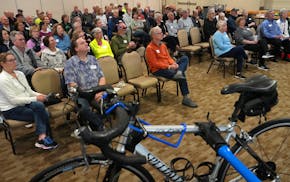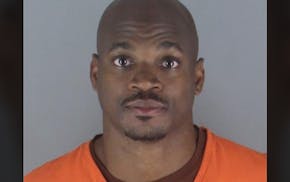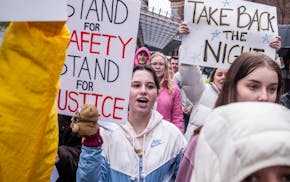Minnesota's first lottery for people seeking cannabis business licenses — a key step toward opening the state's recreational marijuana market — was delayed Monday amid lawsuits filed by applicants who said they were unfairly denied entrance.
A Ramsey County judge blocked the state's Office of Cannabis Management (OCM) from holding its planned Tuesday lottery for social equity applicants who are seeking preapproval for cannabis business licenses. Judge Stephen Smith said the delay would give the Minnesota Court of Appeals time to review the recently filed legal challenges.
"With that, there's no lottery tomorrow," Smith said.
The lottery for social equity applicants was intended to offer a head start in the new industry for people who were negatively impacted by cannabis prohibition. It would have granted 282 aspiring cannabis entrepreneurs preapproval for business licenses, giving them the certainty they need to secure investment, commercial real estate and local zoning approval.
Aspiring cannabis growers would have been able to immediately start planting upon preapproval, helping establish a supply chain of cannabis before retailers open their doors.
Several lawsuits were filed in the past week after the OCM sent rejection notices to 1,169 of the 1,817 applicants who had hoped to enter the preapproval lottery. The office said it rejected applications for several reasons, including failure to meet qualifying standards, submit proper documentation or meet ownership requirements.
One of the lawsuits was filed on behalf of a rejected social equity applicant who had signed an agreement, giving herself a future option of selling her interest in a cannabis business to another entity. The agreement raised doubts about who would really be in control of the cannabis business, said Assistant Attorney General Oliver Larson, who represented the OCM in court.
"What OCM determined is … you have to disclose who's actually in control of the entity. If you can be forced to sell your entity to someone else, you are not in control of it," Larson said.
That entity had entered into similar agreements with about 200 applicants to increase its chances of controlling a cannabis business, Larson said.
"This is clearly a part of a scheme to flood the system with applications," he said. "Therefore allowing the ultimate persons behind all of this to essentially exercise control."
Attorneys representing other rejected applicants told the judge their clients were denied entry to the lottery for vague reasons, or without any explanation at all. The office is required to provide explanations to rejected applicants.
Attorney Courtney Ernston, with North Star Law Group, said one of her clients who applied to enter the preapproval lottery was given no reason for her rejection, aside from the word, "fail."
"Simply saying the word 'fail' is not a reason," Ernston said. "The basis for the denial needs to be communicated to these applicants."
In October, the OCM sent deficiency notices and requests for more information to about 300 social equity applicants, giving them up to 14 days to correct problems in their applications or provide additional information.
Some of the attorneys told the judge Monday their clients weren't afforded the same opportunity.
"Last week, they were told, 'You're disqualified because you did not provide a point of contact in your operations plan.' So, an incomplete application," attorney David Standa said. "Instead of getting a deficiency notice for that, they were just outright denied."
The legal fight could affect what's been an already slow rollout of Minnesota's recreational marijuana market. The state legalized marijuana for adult use in May 2023 and has targeted an early 2025 market launch. As that date quickly approaches, no licenses have been issued and cultivation has yet to start.
The state intends to open the application process for cannabis business licenses to all Minnesotans early next year. Regulators initially intended to hold two license lotteries: one for social equity applicants and another for everyone else. Larson said Monday that delaying the social equity applicant lottery might force the cannabis office to skip it entirely.
"As this process slides into the general process, there's simply not going to be the ability to run these two processes in parallel, and we're probably just going to have to abandon the social equity process," Larson said. "That is a real harm to the 600 or so folks who have actually put in applications, done what they were supposed to do and are there sitting ready to go through this lottery process."
Staff writer Matt DeLong contributed to this report.

These Twin Cities suburbs are seeing a surge in senior citizens
50 years after the Fall of Saigon, 'invisible' Southeast Asian veterans seek deferred honor

State Patrol: Ex-Viking Adrian Peterson arrested in Twin Cities for driving drunk with four passengers in his car
FBI arrests a Milwaukee judge accused of helping a man evade immigration authorities
